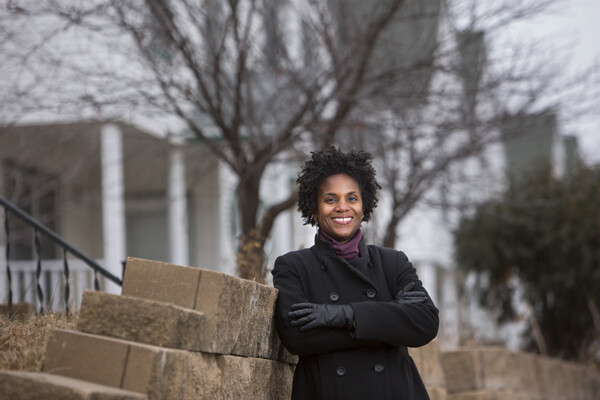
Adolescence is hard enough, but adding discrimination to the mix can be deadly.
Studies have shown that perceived discrimination among minority adolescents leads to smoking, anger, alcohol use and abuse, depression or psychological distress, but a new study by UNL sociologist Bridget Goosby demonstrates that discrimination also directly impacts the overall health of African American adolescents.
According to the American Heart Association, African Americans are at a higher risk than whites to die of heart disease. Research over the last decade has demonstrated that discrimination against African Americans may be a direct cause of many of these health problems, but most of this research has been in adults.
Goosby’s study is one of the first to examine the effects of discrimination in youth.
“We haven’t seen any studies that have been done in people this young before, although there have been calls to look at discrimination at earlier ages because there is a growing literature that shows discrimination is actually harmful for people’s health, particularly among African American adults,” Goosby said. “We really wanted to focus on young people because discrimination doesn’t start in adulthood. It can start a lot earlier in the life course.”
For the study, Goosby recruited 44 low-income adolescent African American youths between 10-15 years old from an Omaha health fair she organized with funding from the National Institutes of Health. Blood samples and blood pressure readings were collected, as well as information about stress and perceived discrimination through interviews.
Goosby found a strong correlation between perceived discrimination and levels of C-reactive protein, which causes inflammation, and blood pressure.
“I didn’t expect that discrimination would have such a strong relationship with these particular markers of cardiovascular disease risk in kids this young,” Goosby said. “These youths are already experiencing health impacts that are related to discrimination. For me, that was pretty shocking.”
Goosby said the findings show the need for interventions.
“Figuring out ways to intervene and help young people to be resilient in the face in these kinds of challenges is key,” she said. “Self-esteem is hugely important. Racial identification can be important. Feeling like you’re part of a group and that there are positive characteristics to the group that you’re a part of is important.”
Goosby is creating a report of her findings for Omaha city leaders, education leaders and advocates. She’ll present the information formally this summer.
In the meantime, Goosby has started a new study in Lincoln looking at a larger group that’s both more racially and socioeconomically diverse. She has also submitted a proposal to the National Institutes of Health to fund an even larger study.
“Could what we found in Omaha be replicated in a place that’s more racially integrated and with a more diverse sample?” Goosby said. “The experiences of discrimination might be very different for the kids there compared to kids in Lincoln.”
Goosby said preliminary findings in that research are drawing parallels to what was found in the Omaha sample featured in this study, which means policymakers and community leaders can take note.
“If you’re interested in how to alter the trajectory of health disparities for marginalized populations, you have to start early,” Goosby said. “You have to figure out how to intervene and help youth develop health coping strategies to protect them from the harmful effects of discrimination.”
The study, “Perceived Discrimination and Markers of Cardiovascular Risk Among Low-Income African American Youth,” is co-authored by fellow UNL sociologists Sarah Malone, Elizabeth A. Richardson, Jacob Cheadle and Deadric T. Williams and was published online in the American Journal of Human Biology.







